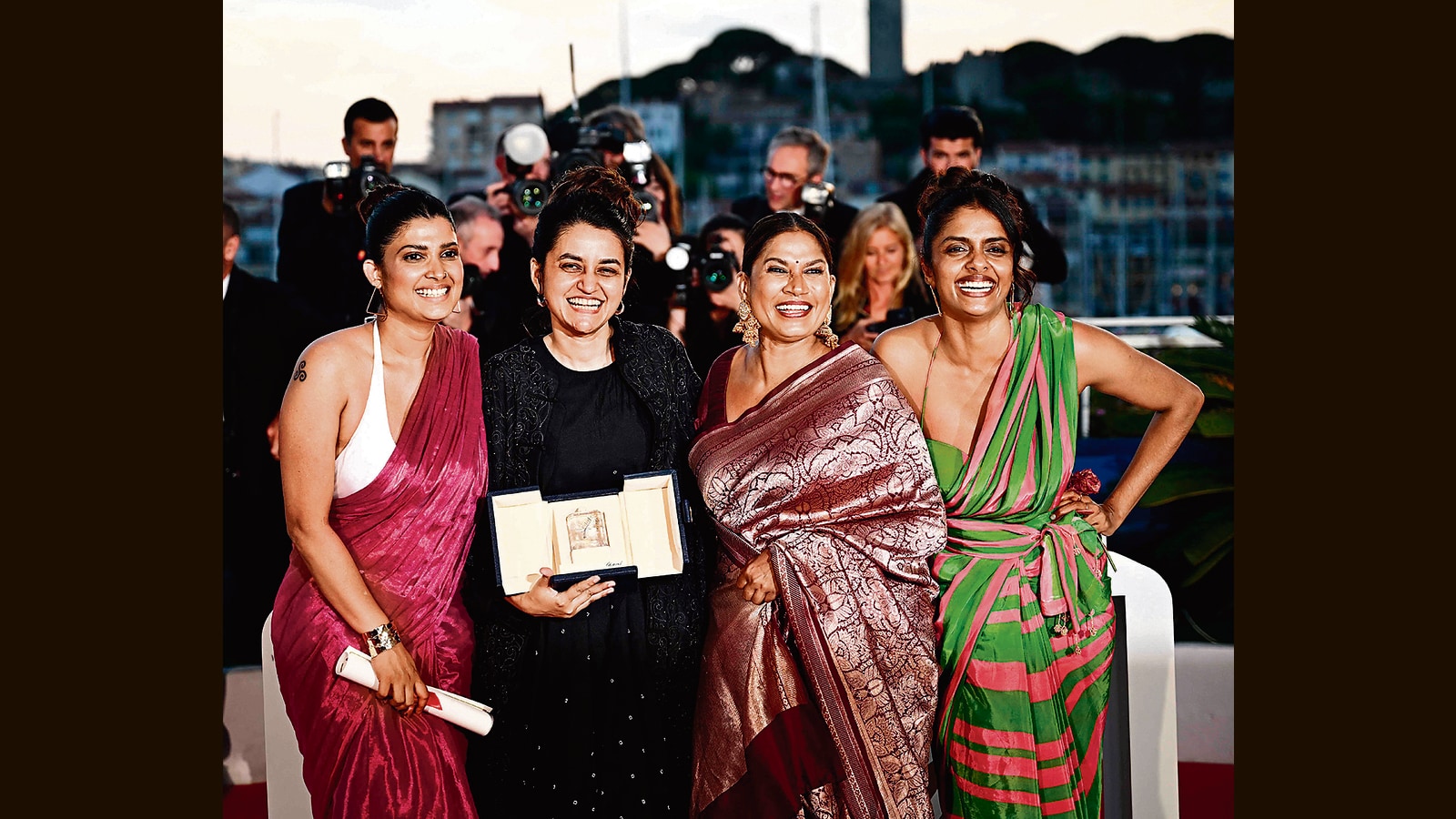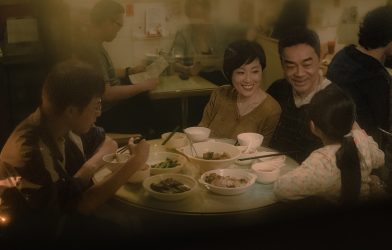On Saturday night, Payal Kapadia’s ‘All we Imagine as Light’ boldly went where no Indian film had gone before. Not only was it the first Indian film in the competition at Cannes in thirty years — after Shaji Karun’s ‘Swaham’ (1994) — it also took home the Grand Prix.
Chetan Anand’s ‘Neecha Nagar’ had shared the Grand Prix but that was before Independence, in 1946.
Kapadia’s film has broken new ground in more ways than one. For a country that is movie crazy and produces almost a thousand films a year, the impact it makes on the international festival circuit is trivial. It is pertinent to note here that all the new Indian feature films at Cannes this year — ‘Santosh’, ‘Sister Midnight’, ‘The Shameless’ (directed by Konstantin Bojanov, a Bulgarian film maker), ‘In Retreat’ and ‘All We Imagine as Light’ — were international co-productions. It seems like it is difficult to break through in the global festival circuit without international backing.
But be that as it may, this moment belongs to Payal Kapadia and her team; to Anusuya Sengupta who won Best Actress for ‘The Shameless’ in the Un Certain Regard; and Chidananda Naik whose short film ‘Sunflowers Were the First to Know’ won the first prize and Manasi Maheshwari’s ‘Bunnyhood’ that won the third prize in the La Cinef section (for film school films and animation films). The common thread that binds them is that they are all alumni of the Film and Television Institute of India (FTII), an institute that is often roiled by controversy. But this is something that the organization can justly be proud of.
Kapadia’s film was pitted against some of the biggest names in the world of cinema. There was Francis Ford Coppola, Paul Schrader, Jia Zhang-ke, Yorgos Lanthomis, Paolo Sorrentino and more. There was also Mohammed Rasalouf, the Iranian film maker who literally crossed mountains to escape from a repressive regime to make it to Cannes.
Any debutant filmmaker would be over the moon to be mentioned in the same league as those illustrious names. But cinema is a great leveler; it doesn’t matter if you are a great auteur, the audience judges you by your latest offering. When the lights came on at the Grand Theatre Lumiere after the screening of ‘All we Imagine as Light’ to a thunderous eight-minute standing ovation, it was clear as daylight that the film would not go empty-handed. It was not just the ovation that gave an indication of what was to come, but the film itself was clearly a few notches above several others in its theme, craft and storytelling. The international press gave it glowing reviews: “Will this ‘magical’ ode to nocturnal Mumbai win the Palme d’Or?” asked the BBC; “Dreamlike and gentle modern Mumbai tale is a triumph,” said Peter Bradshaw writing for The Guardian; and the Variety headline said, “A glowing portrait of urban connection and unexpected sisterhood.”
It was clear that the film was going to create history, with or without the top prize.
Even though the story is set in Mumbai and is a tribute to the city itself, the manner in which it connects universally is the biggest triumph of the film. Kani Kusruti and Divya Prabha play two nurses from Kerala, living in Mumbai where we also see the monsoon, the local trains, and the quintessential elements of the city in all their glory. Chhaya Kadam (who is on a roll this year with films like ‘Laapataa Ladies’, ‘Madgaon Express’ and ‘Sister Midnight’ besides this film) plays a widow working in the hospital canteen who is facing eviction because her late husband didn’t leave any property documents behind. “Without papers, one just vanishes into thin air,” she says, and the reference to kagaz is clearly not only about property papers. If the first half is about the hustle and bustle of Mumbai, the second half is set in the sylvan surroundings of Ratnagiri on the Konkan coast, where the three women converge.
The film is like a room where everything is beautifully arranged, or a complex physics equation that is explained in the simplest manner; you can see the complexities of life, and Kapadia puts it across in the most gentle, sympathetic and understanding manner. The actress Vicky Krieps, who won Best Actress at Cannes for ‘Corsage’ in 2022, said that it was one of the most poetic films she had seen in a while and was visibly moved after the screening. Poetic is a word that is often associated with Kapadia’s short films as well, particularly ‘Afternoon Clouds’, which made it to Cannes in 2017 followed by ‘And What Is The Summer Saying’ which is also set in Maharashtra.
Her documentary on student unrest at FTII, ‘A Night of Knowing Nothing’, won the L’Oeil d’or (Golden Eye) at Cannes in 2021.
When Viola Davis came on stage to announce the award, she said, “Art doesn’t come from a safe space.” It is a double whammy: making a film is difficult enough, but to put up a fight to make one is another thing. When the Japanese auteur, Hirokazu Koreeda declared the winner, history was made. Kapadia gave the most gracious speech, and spoke about sisterhood. “This film is about friendship, about three very different women. Oftentimes, women are pitted against each other. This is the way our society is designed and it is really unfortunate. But for me, friendship is a very important relationship because it can lead to greater solidarity, inclusivity and empathy,” she said with Kani Kusruti, Divya Prabha and Chhaya Kadam — elegantly dressed in sarees — on stage with her. It was a big moment for them as well because they are not mainstream actresses, and don’t grab eyeballs the way stars do.
But Payal Kapadia’s triumph at Cannes may still not free her from her troubles back home. As Oscar-winning sound designer Resul Pookutty said on Facebook, Payal who is accused number 25 in a case filed against students for agitating against then FTII chairman Gajendra Chauhan, will have to go to court on June 26 for the next hearing. Perhaps that is what Davis meant about art not coming from a safe space. But all those who try to crush dissent should pay heed to what Bob Dylan said — “Come mothers and fathers throughout the land/ And don’t criticize what you can’t understand/ your sons and your daughters are beyond your command/ Your old road is rapidly agin’ / Please get out of the new one if you can’t lend your hand/ For the times they are a-changin’”
A young woman with a powerhouse of talented ladies brought home the Grand Prix — the times are indeed changin’.
Get Current Updates on India News, Elections 2024, Lok Sabha Election 2024 Live, Delhi Election 2024 Live, Election 2024 Date, Weather Today along with Latest News and Top Headlines from India and around the world.









